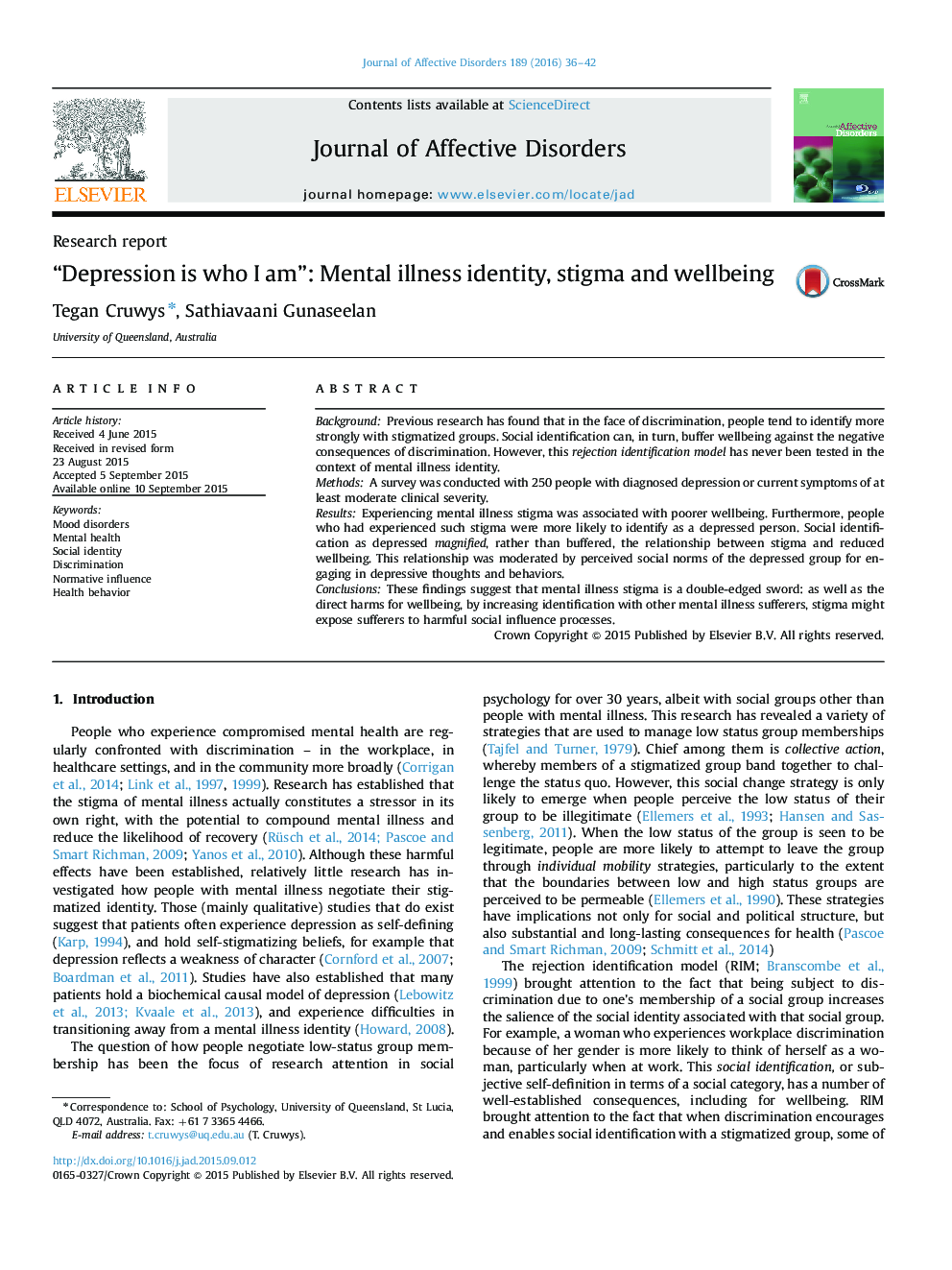| Article ID | Journal | Published Year | Pages | File Type |
|---|---|---|---|---|
| 6230834 | Journal of Affective Disorders | 2016 | 7 Pages |
â¢Identification with a group, even a stigmatized group, is protective for wellbeing.â¢These relationships have not been tested in the context of mental illness identity.â¢We surveyed 250 people with depression from 23 countries.â¢Identifying as depressed predicted lower wellbeing.â¢Identifying as depressed predicted conforming to the norms of depressed people.
BackgroundPrevious research has found that in the face of discrimination, people tend to identify more strongly with stigmatized groups. Social identification can, in turn, buffer wellbeing against the negative consequences of discrimination. However, this rejection identification model has never been tested in the context of mental illness identity.MethodsA survey was conducted with 250 people with diagnosed depression or current symptoms of at least moderate clinical severity.ResultsExperiencing mental illness stigma was associated with poorer wellbeing. Furthermore, people who had experienced such stigma were more likely to identify as a depressed person. Social identification as depressed magnified, rather than buffered, the relationship between stigma and reduced wellbeing. This relationship was moderated by perceived social norms of the depressed group for engaging in depressive thoughts and behaviors.ConclusionsThese findings suggest that mental illness stigma is a double-edged sword: as well as the direct harms for wellbeing, by increasing identification with other mental illness sufferers, stigma might expose sufferers to harmful social influence processes.
